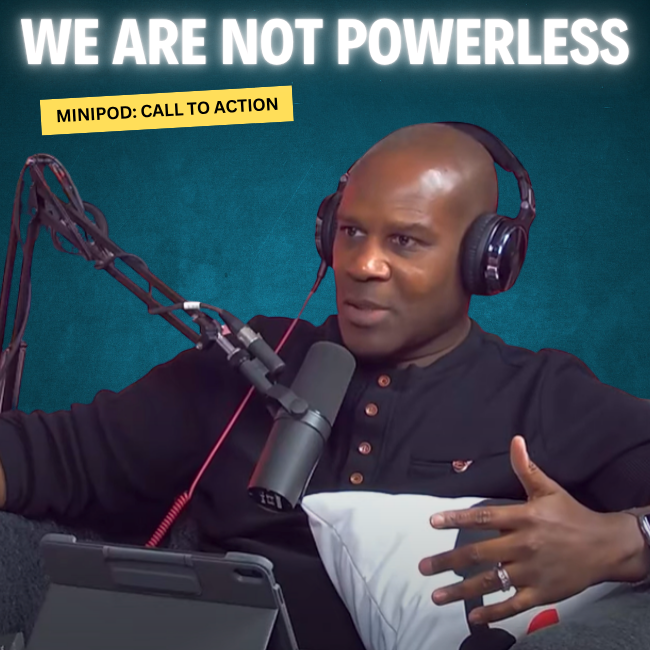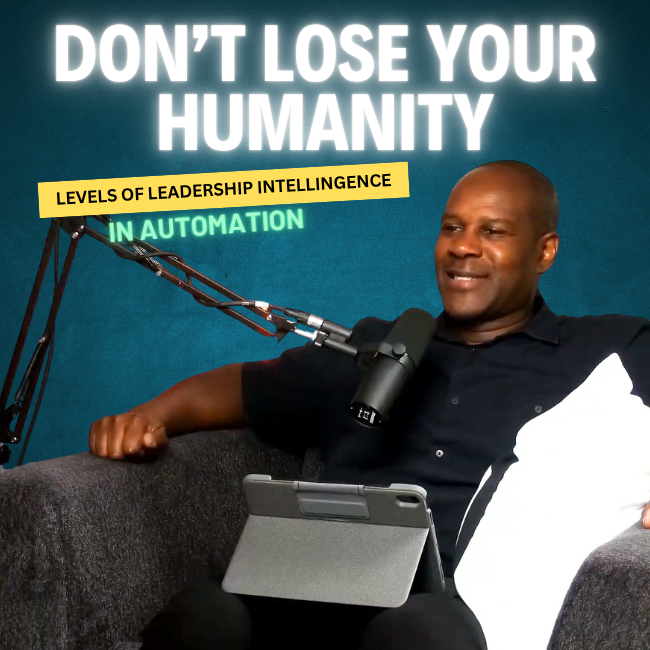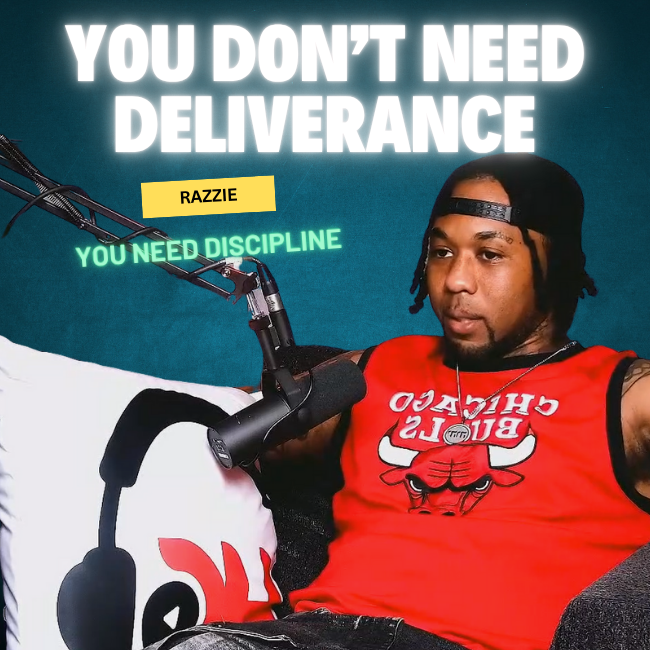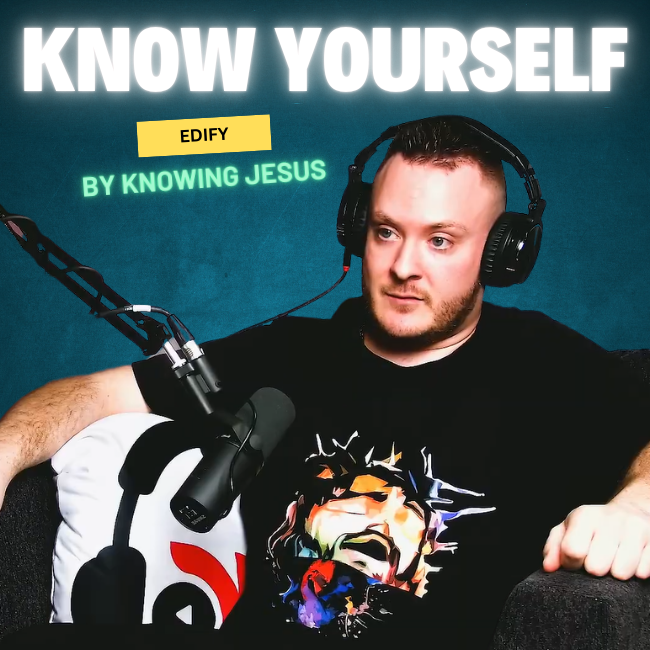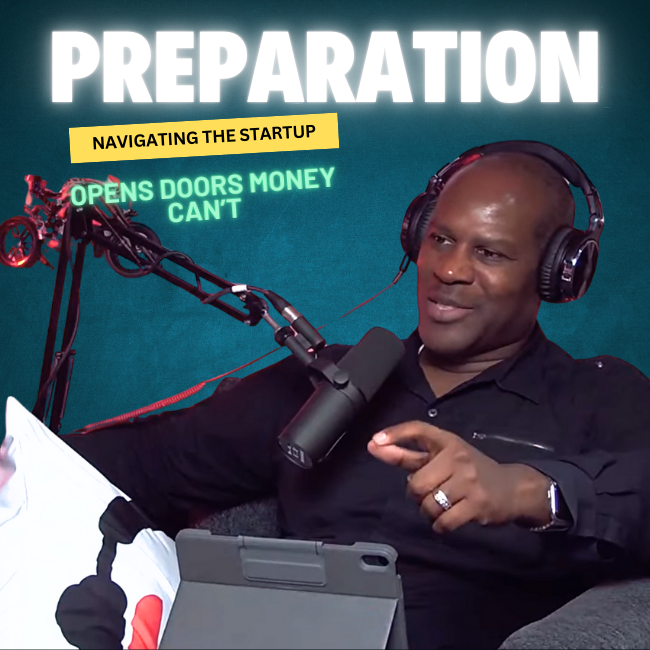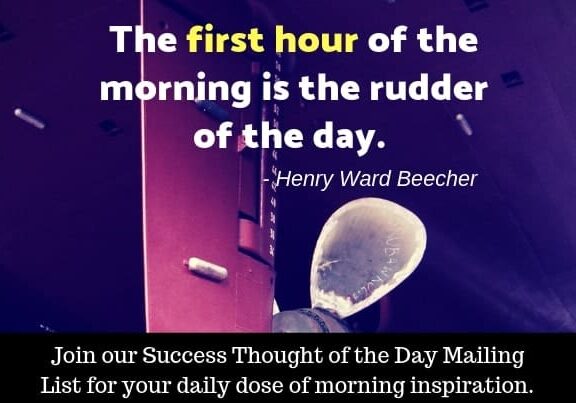Episode 32: Becoming a Sought-After Opportunity Maker with Kare Anderson
Subscribe: iTunes | IHeartRadio | Spotify | Stitcher
Begin tapping into your talents like never before by helping others tap into theirs! Kare Anderson, whose TED Talk has been viewed over 2.4 Million times, shares the secrets of mutuality, her journey, and tips to get started.
During this episode we discuss:
- Increasing your credibility and the meaningfulness of your messaging.
- How mutuality amongst diverse allies allows you to achieve faster and more informed decision making.
- How to identify who to partner with and how to get started.
Key Topics
03:42 – Kare highlights the importance of developing relationships with diverse people with complementary talents and that the superpower necessary to create those relationships.
05:17 – The definition of Opportunity Makers and the mutuality mindset.
06:30 – The shift of power bases from institutions to individuals.
8:30 – The importance of mutuality amongst diverse allies, allowing you to see more sides of a situation from different views, making better decisions.
10:00 – Kare’s advice on how to introduce mutuality into a workplace culture where it may not exist.
16:15 – How Kare handles unsolicited LinkedIn invitations in the context of mutuality.
17:17 – The top three things you can do to become an Opportunity Maker.
Key Takeaways
- Specificity makes you more credible and your messages more meaningful. The general conclusion cannot prove something, but a specific detail can prove a general conclusion.
- Mutuality amongst diverse allies allows you to achieve faster, more informed decision making, as you can see a situation from more sides with different views and capabilities.
- Go out of your way to figure out your blind spots, hot buttons, and talents. Look for others who do well in those areas, offer mutuality and trade tips.
- When you meet others you want to get to know better, whatever they comment on, ask a follow-up question.
- Specificity. Whatever you call yourself (your company, your mission, etc.), can you come up with labels that are vivid and specific?
Resources Mentioned
Connect with Kare
Connect with James Rosseau Sr.
- mailto:jamesrosseau@thecorelinksolution.com
- www.thecorelinksolution.com
- YouTube
Biography
Kare Anderson is an Emmy-winning former NBC and Wall Street Journal reporter, now connective behavior and quotability speaker, author, and columnist for Forbes.
Anderson’s TED Talk on The Web of Humanity: Be an Opportunity Maker has attracted over 2.4 million views. Her clients are as diverse as Salesforce, Novartis, and The Skoll Foundation. She was a founding board member of Annie’s Homegrown, co-founder of nine political PACs, and author of Mutuality Matters, Moving From Me to We, Getting What You Want, and Resolving Conflict Sooner.
Anderson serves on the advisory boards of The Business Innovation Factory, Gloopt, TEDxMarin and World Affairs Council Marin.
Full Transcription
James: Hi. Welcome to another episode of the Corelink Solution. With me today is Kare Anderson. Kare is an Emmy-winning, former NBC and Wall Street Journal reporter, now connective behavior and quote-ability speaker, author and columnist for Forbes. Anderson’s Ted Talk on the Web of Humanity, Be an Opportunity Maker has attracted over 2.4 million views. Her clients are as diverse as SalesForce, Novartis and the Skoll Foundation. She was a founding board member of Annie’s Homegrown, co-founder of nine political PACs, and author of Mutuality Matters, Moving from Me to We, Getting What You Want and Resolving Conflict Sooner. Anderson serves on the advisory boards of the Business Innovation Factory, Gloopt, TEDxMarin and World Affairs Council.
With me today, again, is Kare Anderson. Kare, welcome to the Corelink Solution.
Kare: I’m deeply honored to be here. Thank you.
James: I’m so glad you could finally get here. We’ve been planning this for quite some time.
Kare: Yes.
James: And a little technology challenge today day, but we have weathered through it.
Kare: Amen. Groundedness throughout.
James: Exactly.
So, let me start with this. What is one thing that you might be able to share that’s a fun fact about Kare that most people don’t know.
Kare: Well, it’s an embarrassing thing, but it led to my best life. I grew up a stutterer, and I was very quiet in high school, so a teacher said — Kare, you always look startled, so I think you should interview people, people love to answer questions — so she started me out on writing, and then I’m seeing how people lit up. And it helped me eventually outgrow being a stutterer.
And secondly, when I was at Stanford, I learned from a test that I had no sense of direction, I have a brain dysfunction. So, I had to eagerly look out for people who were great at it, and you were not humiliated when I’d say, could you show me how to get here or go with me?
And I realized, finding people with talents different than me means a great opportunity for them and me, complimentary talents, and that’s been core to my path the rest of my life.
James: Gotcha. That’s great.
One of the questions that jumped out to me as I looked at the TED Talk and I dug through some of your book material and some of the things you’ve done — what really brings you to this point in your journey? You’re spending a lot of time really, to me, taking a message out that really is a very empowering message to help people understand the mutuality of helping others bring their benefits to the table, and being beneficially to each other.
What brings you to this point in your journey?
Kare: To keep on noticing what works for you. Notice that when you’re around other people.
I had a man who was the boss at The Wall Street Journal, and I was 10 years younger than all the other people who were all guys, and they always sort of tried to not be near me. And there was only one woman, she was the only inappropriate journalist. She wore inappropriate clothing, she touched men inappropriately.
I’m the total opposite. So, I went up to one of the reporters finally and said — sir, I admire you guys, you’ve helped me so much, am I bugging you in some way?
Oh, no, Kare, you just don’t know how to swear, and swearing is big about what we do.
I said — oh, can you teach me? — and they all cracked up laughing.
Again, each of the times in my life when some thing has mattered, I was willing to ask why, and I attracted unexpected diverse allies. And it’s so important in our world today to have allies with complimentary talents.
And I realized the superpower to doing that is specificity. You can only get specific about your message or your responses when you’ve got clarity about what you stand for, what your blind spots are, and what your hot buttons are, so you don’t react as much and you choose how you act. And specificity, when you get that, makes you more credible and makes your messages more meaningful.
So, I think that’s one of the core things in my life because we tend to speak in generalizations. But a general conclusion cannot prove something, but a specific detail can prove a general conclusion. And it’s mattered to me all my life when I notice I’m not getting specific enough yet.
And to help other people, because sometimes it’s helped out somebody very different and you’d say — I don’t understand what that means.
James: This term you use, “opportunity maker,” where did that term come from?
Kare: It popped into my mind, I caught sidelong glancing. If you want to think of a label, do it when you’re walking, have it on your mind when you want to come up with a the label, and then you look at signs, you look at people, so there’s some spark that happens. And, a friend was saying, I need some new opportunities, how can I make it happen? And I said, just a moment, can I write that down? — “Opportunity, happen.”
Opportunity makers are ones who pull opportunities in for them and create them for others. That led to the label, Mutuality Mindset. Because the best way to do it is when there’s a sense of mutuality. And I truly believe the healthiest relationships are not based on a quid pro quo, but an ebb and flow of mutual support over time. We both trust that you’re going to be there when we need you. And that’s so vital these days.
James: Yeah, that’s beautiful.
One of the things that I really appreciated about your work was this concept of the opportunity makers, but then what you just talked about, the mutuality. And one of the statements that you wrote and talked about with a lot of passion was this notion of this shift of — and correct me if I’m wrong, if I’m misquoting you — but the shift of power, the power base, from institutions to individuals, as those individuals harness that mutuality, and the benefits between individuals. Can you say more about that?
Kare: Sure. I think it’s a circle, you see. Because when people in an organization or even people that are talking to their customers or their endowments, when they can get more specific and they help each other, they gain more power, and they realize they gain more collective power.
So in effect, any organization that really wants to keep the most talented people is to be very candid and encourage them to be candid with each other, including “I disagree,” or “that shouldn’t be our top priority, can we discuss another one,” with people that may be five steps above. Because in a way, employees then are training the people who started the company by the way they’re acting.
That’s one of the reasons I’m a fan of SalesForce, frankly. Because from the very top, everyone I’ve talked to said — we can be candid, we disagree, we built relationships, I’ve introduced my wife or my daughter to these other people, we get together for vacations.
That’s impressive that they like each other so much and they trust each other. It makes life more adventuresome, but it also makes them, they believe, more talented and experts in ways they can grow. No one could be the expert about everything. So, we can turn to somebody and get them be pithy and specific and responsive. It helps us.
James: When you think about this power shift, and this mutuality pan out, how have you seen this? What’s evidence you’ve seen?
Kare: I’ve seen it when, as I was saying, some organizations keep their top performers because they’ve allowed them and encouraged them to grow, and they’ve even cited them. So, when the founder of a company actually cites somebody because they like what they did. Like I’ll say, go back to SalesForce, they allow the employees to have one day off a month to do their own cause. And that’s one way that people all learn you also care about that — so do I, maybe this way we can both help on this, or you did that phenomena for your nonprofit, I’d like to do this — and in effect, some of those ideas go up.
The next thing I’ll just say about that briefly is, one of the things that’s given me so much joy is when there’s a mutuality among diverse allies. Then you can see more sides of a situation. A potential problem or option comes up in your personal life or your work life or in a friend’s life, and you call friends you trust, and say very specifically — I want your idea on this — so they pay attention. But if you can see more sides of a situation, you can make smarter decisions faster, collectively.
James: Those are some great examples.
One of the things, when I think about those examples is, they feel like there was also an environment that helped shepherd that behavior. Because you were brought in as a consultant, so either some of the behavior was already existing and they wanted to amplify it, or the behavior may not have been there, and they wanted to usher in the behavior, thus bringing you in and maybe working with their teams.
What advice do you give to people that are listening right now and going — man, I’d love to have that in our company, but I’m not sure our leadership supports that kind of behavior.
We as individuals want to do some of those things, but we don’t necessarily feel empowered to do those things. And to show that level of individualism and then create that mutual beneficial environment, etc., what advice do you give?
Kare: “Shepherding,” by the way, thank you. I love that phrase.
I think what some of them I’ve encourage to do is to invite not more than maybe seven people, and say — can we get together over lunch from different departments? — especially in a large company. And I say — we’re going to try this, it’s just a 15 minute time to get together, but tell me what top problem and opportunities that you see, and this is confidential, we’re trusting, be specific and brief — and I’ve encouraged people to take those guidelines, and they’ve done it and they wind up realizing that about seven is the most for them to actually do it.
But then I found there’s research. Imagine a large company. There’s a group that grows seven-person groups and they get to know each other better. Then sometimes they’ll say — let’s get together with that other group we’ve heard about — and the two groups will get together. And when they crisscross and do it, they learn a lot more about what they really trust and believe in about the company, what they don’t, what they could do differently, where they should learn because there’s a gap in collective knowledge and experience.
But it’s a ticket into their personal life. And that’s what I love, where they say — by the way, my twins are having a birthday. You know how you’re so good at … , would you mind coming and helping us do bla-bla-blah?
And I love the way that they feel comfortable asking because they also know if they were asked themselves, they would respond. It’s a two-way street. It’s a five-way, seven way street.
James: As you have been out talking about these — because the two go together so well, the Mutuality Matters and Opportunity Maker — what’s been some of the most memorable feedback you’ve gotten from people?
Kare: I think one of the most is that — it looked like you cared when you were talking to us — because I’m on a stage. And the other thing is — thanks for giving specific ideas, I think there are too many for me in that talk, but I’d rather have too many than not enough, because frankly, it takes a lot of time.
But another one that keeps coming back is to say — I like your idea of start with a specific example or story.
I said, I learned that as a journalist and it was so key. And so they said “that really started me hunting.”
For example, can I tell you to brief examples?
James: Please.
Kare: I was going to give a keynote in this big conference center, and I was a bit late because of my loss of direction. I burst out of the elevator and I knocked this man over and he got up and he was like, eight inches taller than me, and I said “I’m sorry.” And he says, “Is that the way you like to meet people?” And he cracked me up laughing.
I said, “I’m truly sorry.” He says, “I know how to fall right, lady?”
James: Oh gosh…
Kare: “What are you doing?” And he said, “you know, I think I’m going where you’re going, and I can take you. By the way, since I always stayed so grounded, I want to have ten minutes with you of free coaching.” I said, sure. “You don’t know who I am, do you?” I said, no. And he’s a basketball player, Golden State Warriors.
James: Is that right…
Kare: So, when we walked in together to where I was giving my speech, all the people flooded to him as I went around to get to the stage.
And we’ve stayed friends for eight years. I’ll just say metaphorically, he says — when I go to my next career, Kare, I don’t know how to ask for new jobs — and I said, “well, this is what you want to do next. When you’re interviewed by journalists, make a metaphor that relates to that occupation. Then those people in that occupation will hear about you.”
James: That is great.
Kare: And he said, I’m going to take your god kids, and they can come for free and stay in the best box for the game
So, see how, if people hear these, these are specific examples, but they enliven people to think — we can have a more interesting life with others.
James: Yeah. And what’s the second story? You promised two.
Kare: I was asked as a journalist when I was in Europe to go watch this huge athletic game which had 5,000 people in the stadium, and it was football. And I was so startled as I was looking, because it was crazy for me to be trying to cover it, since I don’t understand sports.
But in the audience, people started heckling and saying racist things about the man who was the best player that I’ve been watching go back and forth. And some people started being insulting — he was dark, he was from Latin America — more people started coming in.
During halftime he went out, and when he came back in, someone threw a banana up in the air and right down, almost hitting his face. He grabbed it nonchalantly, kept on walking, took a bite of it, threw it over his head, and all these people stood up and started clapping for him because he was so cool, and they started cheering him. So, the cheering went bigger than the other.
Flash forward — so many people saw the video, people that were not even into the sport, saw what he did, his choice of acting cool and comfortable and doing something more interesting than the attackers were doing.
Four months later, they had a man at the coliseum who said to him, we want to kick the guy out who was the ring leader, the one who started the attacks. He said — oh, no, point him out and name him, and say “we’re sure you want to change. Do you want to change and apologize and come back?”
So, then there’s another burst of media coverage about this wonderful sports athlete. So just an example of making a choice about how you want to respond when people do things you don’t respect.
James: Absolutely.
So, as we start to wrap up a little bit, and people think about being an Opportunity Maker, I’d love your advice — the top three points of advice you give people.
Because like you said, there’s so many things and I obviously want people to pick up the book, and watch the TED Talk. But what are your top three points of advice? And as you think about your top three points of advice, let me ask you a question that I’m always struggling with. Your book made me even think about this a little bit more. I always struggle with the unsolicited LinkedIn invitation, should you accept it or not? You didn’t even meet them anywhere or anything. It’s just totally out of blue. How do you think about that in this context?
Kare: Whether it’s LinkedIn or somewhere else, I used to say — thank you, where did we meet? — and I thought, no, I don’t do that because I know we haven’t and that’s sarcastic. So, I just ignore it and I delete.
And ever since the TED Talk, all kinds of people hit on me and say — oh, would you mind doing dah-dah-dah…
And I realized, if I’m about mutually, unless someone’s willing to reach out and learn about you, say, because of your expertise, at the very minimum, or “I think we have some common interests where we could be helpful, can we explore it?” Life’s too short. There’s enough people that are like that, that I just say “I’m honored you’re interested, thank you, no.”
So, I get more brief or I don’t respond at all.
James: Gotcha. Okay, good.
Alright. So, I’m not crazy. Good. [laughs] I’m not crazy nor rude.
So now what’s your top three points of advice?
Kare: Go out of your way to think of what your blind spots are, and your hot buttons, and your talents.
Say — who has an expertise different than mine that is core to who they are? — then you notice them when you’re in different places, and you’re able to say — I think they may be helpful to us because we have different talents, can we spend 5 or 10 minutes talking about it sometime? — and that’s worked really well. Look for them. Offer to do mutuality. Say — let’s see ways we can help each other — and offer to be brief.
Second, when meeting people that you want to get to know better, and this is good in general, is ask a follow up question. Whatever they comment on say — could you tell me more about that? — or when they said that — does that mean dah-dah-dah…
Because then you show you genuinely are interested, and you are going to be more accurate in your understanding and they feel heard. And it takes you down a path of mutuality. Because they’re more likely to then say — hey, could you tell me more about what you just said?
So, I think emulating that.
James: Yes.
Kare: And again, specificity. Whatever you call or label yourself or your friends or your core mission, can you come up with labels that are vivid and specific? An example? A story? A compared-to-what?
It isn’t like you have to have ten of them. There’s probably three in your life, how you characterize yourself, how you characterize your mission.
James: That’s good. That “specific” one really hits home, too. The specific labels, the vivid and specific stories. And compared to what — that frame of reference.
Well, thank you so much. I’m so glad we finally got to do this.
Again, folks, Kare Anderson. The information always will be on the website. Please pick up her latest book, Opportunity Maker, and as well as watch the TED Talk, you will enjoy it. It’s about 10 minutes, or maybe just a little longer, but you will definitely enjoy it.
And thank you again for listening to another episode of the Corelink Solution.
You are informed, empowered and can now be accountable. What were some of your takeaways from this episode? I always enjoy hearing from you, so please share.
Additionally, if you have questions, hear some things that are new to you, or need some clarity on some of those things, I am here to serve. Go to our website at thecorelinksolution.com/podcasts. Right below the show notes, you’ll see a comments section. Tell me about some of your takeaways from the episode. You can ask your questions. You can mention challenges in the areas that we cover, or tell me about guests you’d love to hear from. Alternatively, you can do the same through social media channels of Facebook, Instagram or Twitter.
Thank you, as always for linking up, and I look forward to seeing you, next episode.


